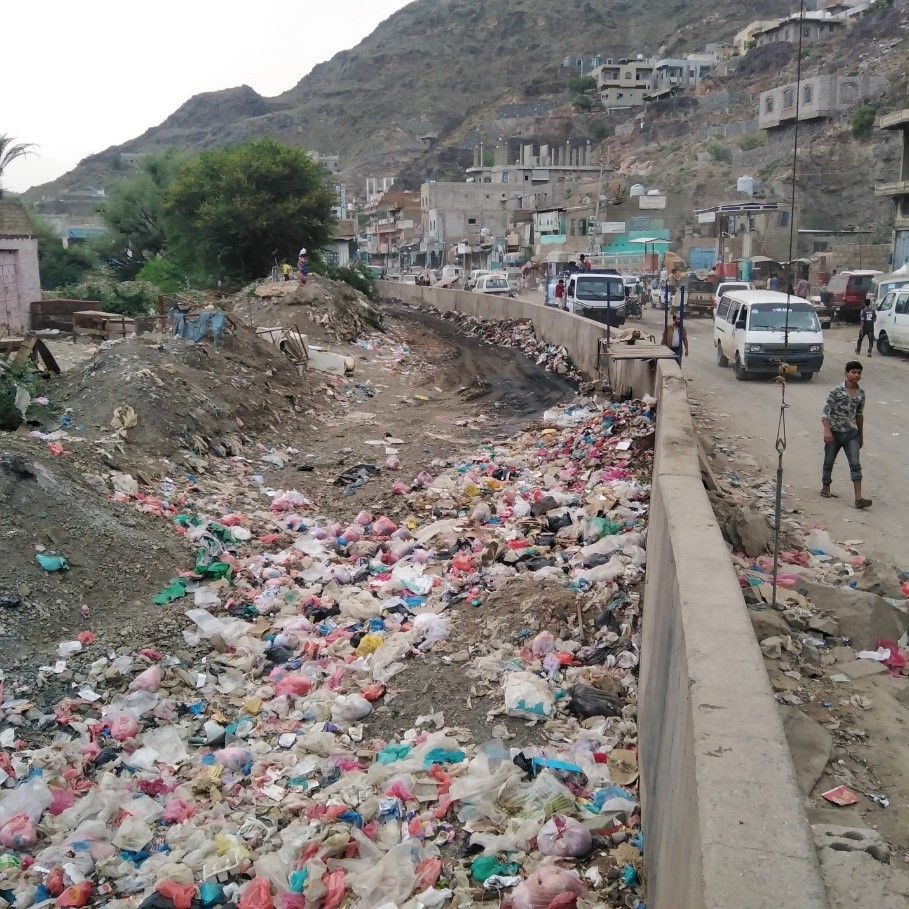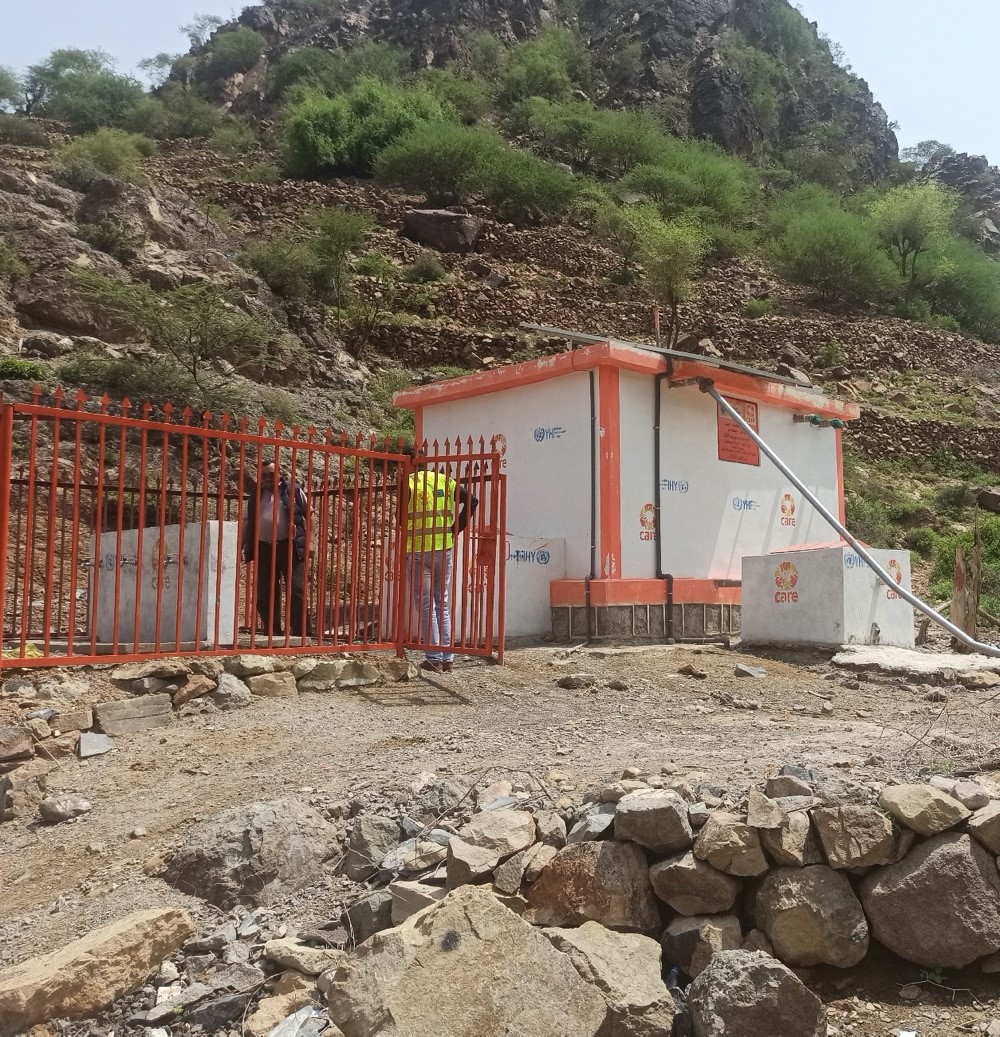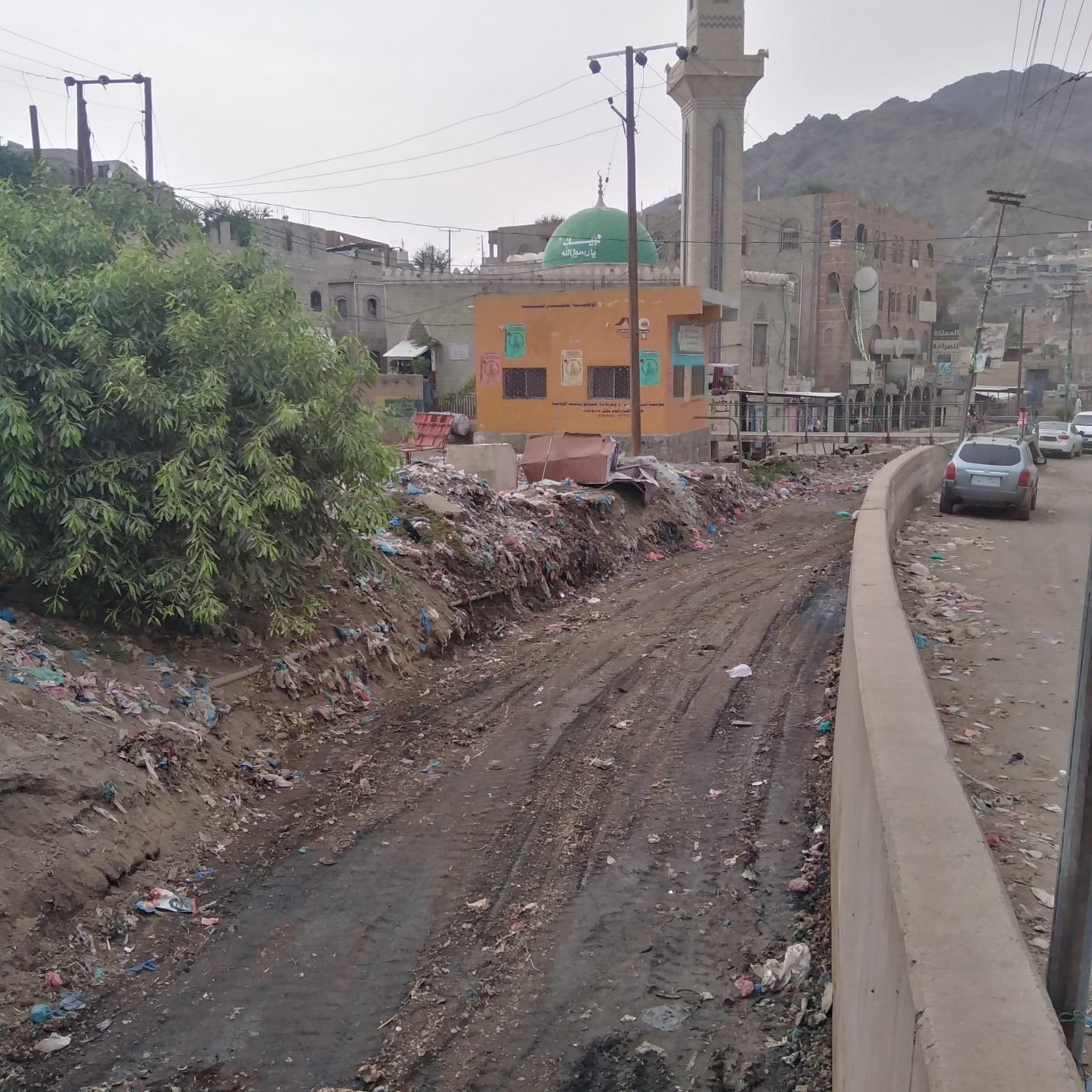Like her female neighbours, Mohaned’s wife used to spend most of her day fetching water from distant places. Residents in Maqbanah district often don’t have basic services like clean water and safe sewage systems. Moreover, the lack of access to latrines causes water and food contamination, increasing the spread of life-threatening waterborne diseases.
During crisis children and women are most vulnerable and face disproportionate consequences, often in silence. Children drop out of school to fetch water for their families. And women, especially those who are pregnant, get sick due to the long distances they walk and the heavy weights they carry. Lack of household latrines means that women have to look for secluded places, often in the dark, in order to relieve themselves, which increases their exposure to risks.
“Residents go to distant areas to relieve themselves in the open because there are no household latrines,” says Mohaned. “In addition, they get sick because they use unclean drinking water.”
With funding from the United Nations Office for the Coordination of Humanitarian Affairs (OCHA), CARE intervened in the Maqbanah district of Taizz governorate to enhance access to clean and safe water and sanitation services.
The intervention constructed and rehabilitated household latrines for 300 families and built a 25m3 water tank supported by a solar system, which provides clean water for families in the area. Community committee members were trained on how to use and maintain the solar power system. As part of the intervention, new hygiene measures have been put in place for garbage disposal, and families received basic hygiene kits.
The availability of water encouraged the residents to plant home gardens that provide nutritious vegetables. “The solar pump system ensures water availability without worrying about fuel,” says Abdulrahman, another resident of Maqbanh district.
Mohaned and other residents in Maqbanah are grateful for the intervention and wish the project will continue to keep their areas clean and safe.




